'Syrians want to go home as soon as possible - Britain is not on their radar': Inside the Middle East's biggest refugee camp
Jordan has welcomed hundreds of thousands of refugees. A new documentary shows the human side of life in Zaatari, a Syrian camp the size of Bath. The Independent talks to two of the film's presenters
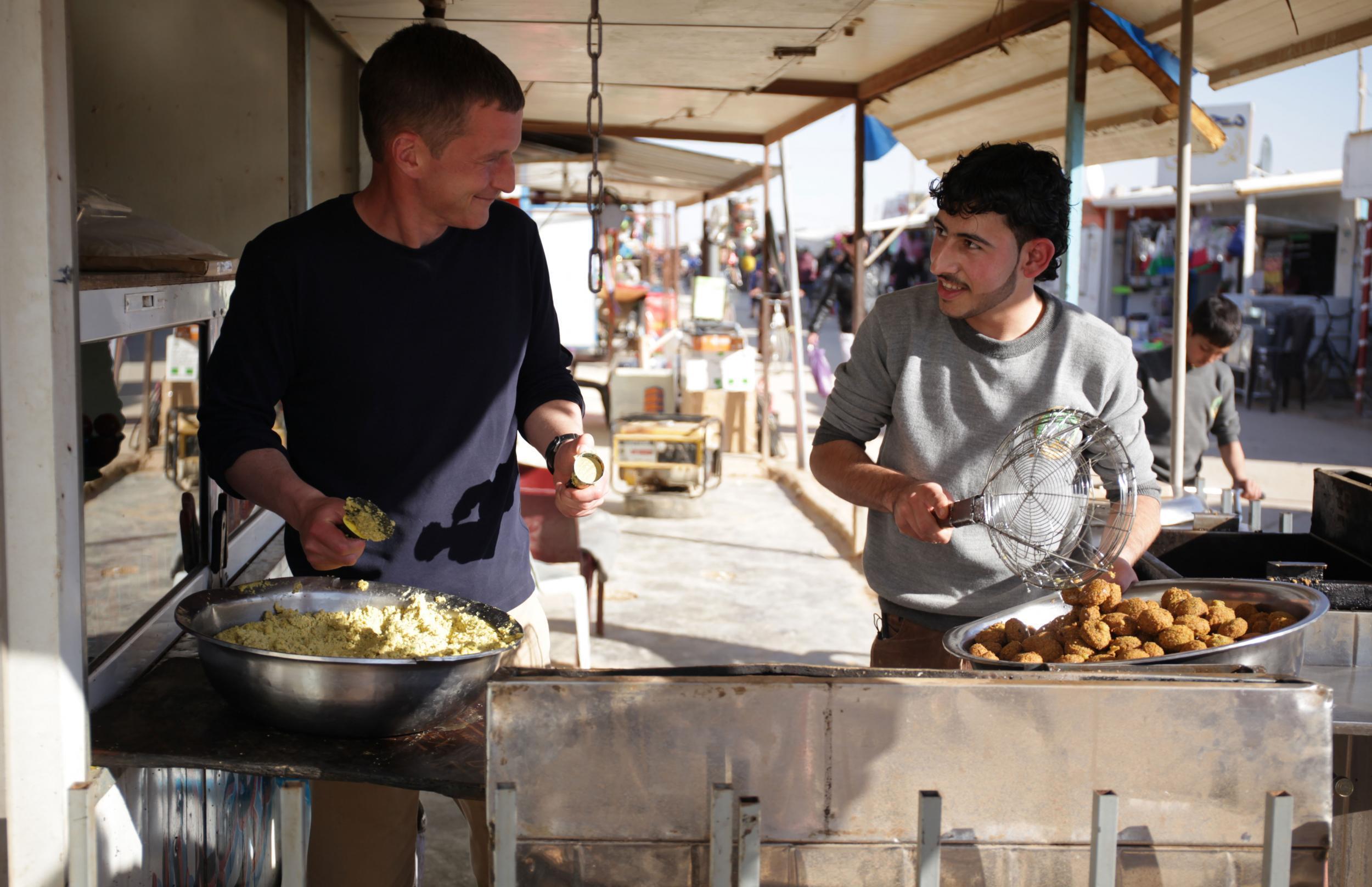
Your support helps us to tell the story
From reproductive rights to climate change to Big Tech, The Independent is on the ground when the story is developing. Whether it's investigating the financials of Elon Musk's pro-Trump PAC or producing our latest documentary, 'The A Word', which shines a light on the American women fighting for reproductive rights, we know how important it is to parse out the facts from the messaging.
At such a critical moment in US history, we need reporters on the ground. Your donation allows us to keep sending journalists to speak to both sides of the story.
The Independent is trusted by Americans across the entire political spectrum. And unlike many other quality news outlets, we choose not to lock Americans out of our reporting and analysis with paywalls. We believe quality journalism should be available to everyone, paid for by those who can afford it.
Your support makes all the difference.If you haven’t seen a Syrian wedding dress before, they tend to err on the glamorous side. You get cascading frou-frou tulle skirts and bodices embellished with beading, embroidery and bling diamante. These Disney princess-worthy frocks couldn’t be more at odds with the perceived image of day-to-day life in a refugee camp. Yet, as viewers will see in the BBC2’s new two-part documentary The Refugee Camp: Our Desert Home, they are a regular sight in Zaatari, the Jordanian camp that currently houses over 79,300 Syrians who’ve fled their war-torn homeland.
The camp was established in 2012 and is now, going on population, the fourth largest town in Jordan. There are around 10 weddings a week there, where bride and groom and their friends and families will attempt to live a semblance of a normal life. In practice, that means a lot of chanting and singing (sample lyric from the groom’s entourage: “May God help him tonight”), the distinctive, piercing sound of ululating women, cutting through the dust, with some spray foam in the mix for good measure.
“There’s a sense that life goes on. The attitude is ‘look at what we can do with so little’,” says one of the film’s three presenters, A&E doctor Javid Abdelmoneim (known as Doctor Javid). “These people really, really enjoy themselves on a day-to-day basis, there is a lot of kindness between them.”
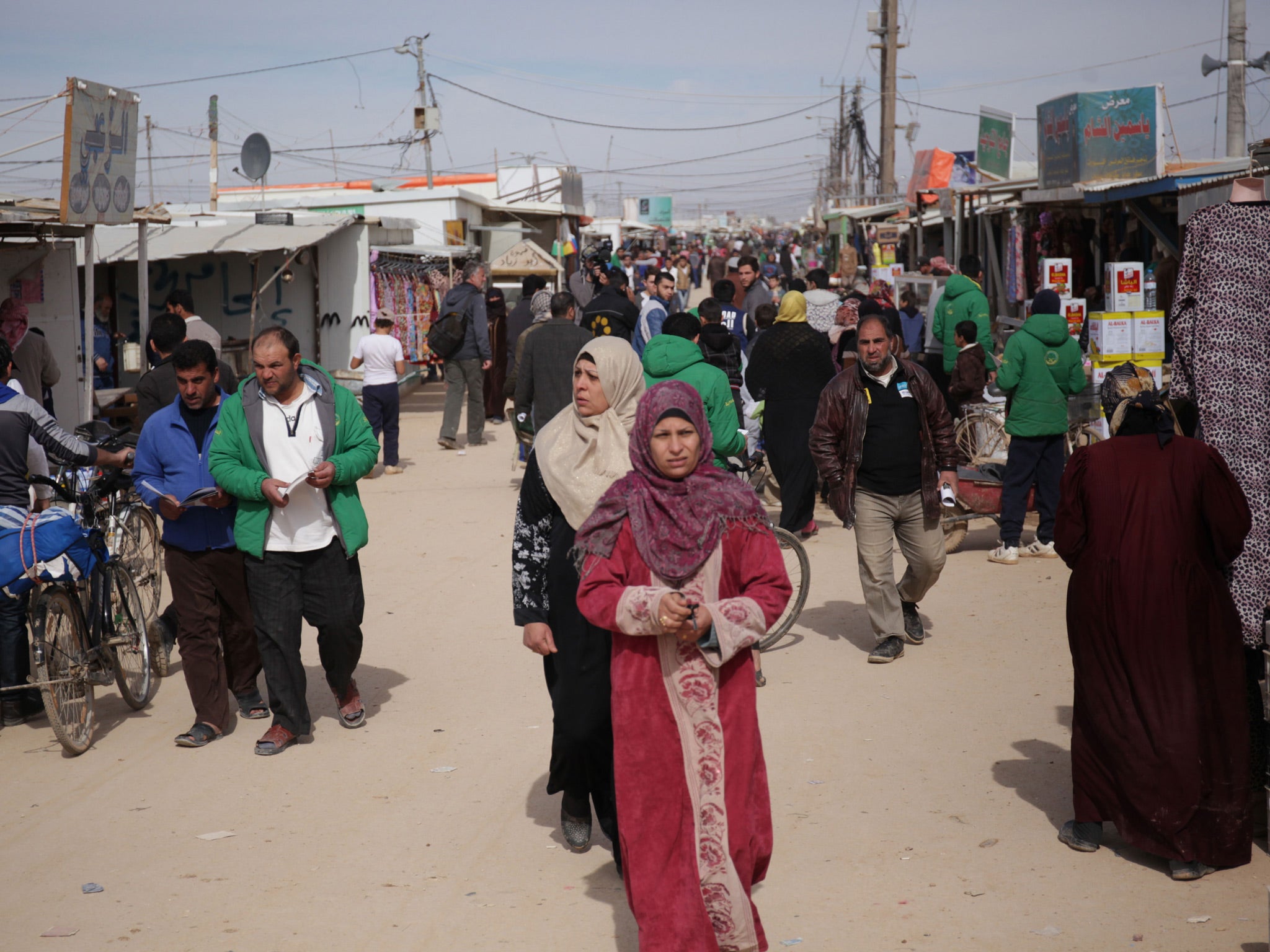
Doctor Javid and his co-presenters, Countryfile frontwoman Anita Rani and hostile environment expert and journalist Ben Timberlake, spent around three weeks in the camp in February and March, a time when temperatures get close to freezing. The camp is run by the Jordanian government, the UN’s refugee agency and more than 30 different charities. They were greeted by residents from grown men to babies keeping warm in green jackets donated from Saudi Arabia. “You wonder what they think about wearing something that’s come from a country who sold weapons to the opposition,” says Javid. “But for the people we spoke to, the blame was laid with Bashar al-Assad all the way.”
Despite the clearly challenging living environment, it is in many ways an upbeat film. It gives a different perspective to the refugee story than the unflinching Exodus, the recent BBC three-parter that followed families and individuals on their journeys to Europe. Here, the three presenters all highlight different elements of camp life. That includes Timberlake working in the bakery that distributes 90,000 loaves a day to the 24,000 homes, as well as following the some of the camps’ youngsters as they competed in a wrestling tournament.
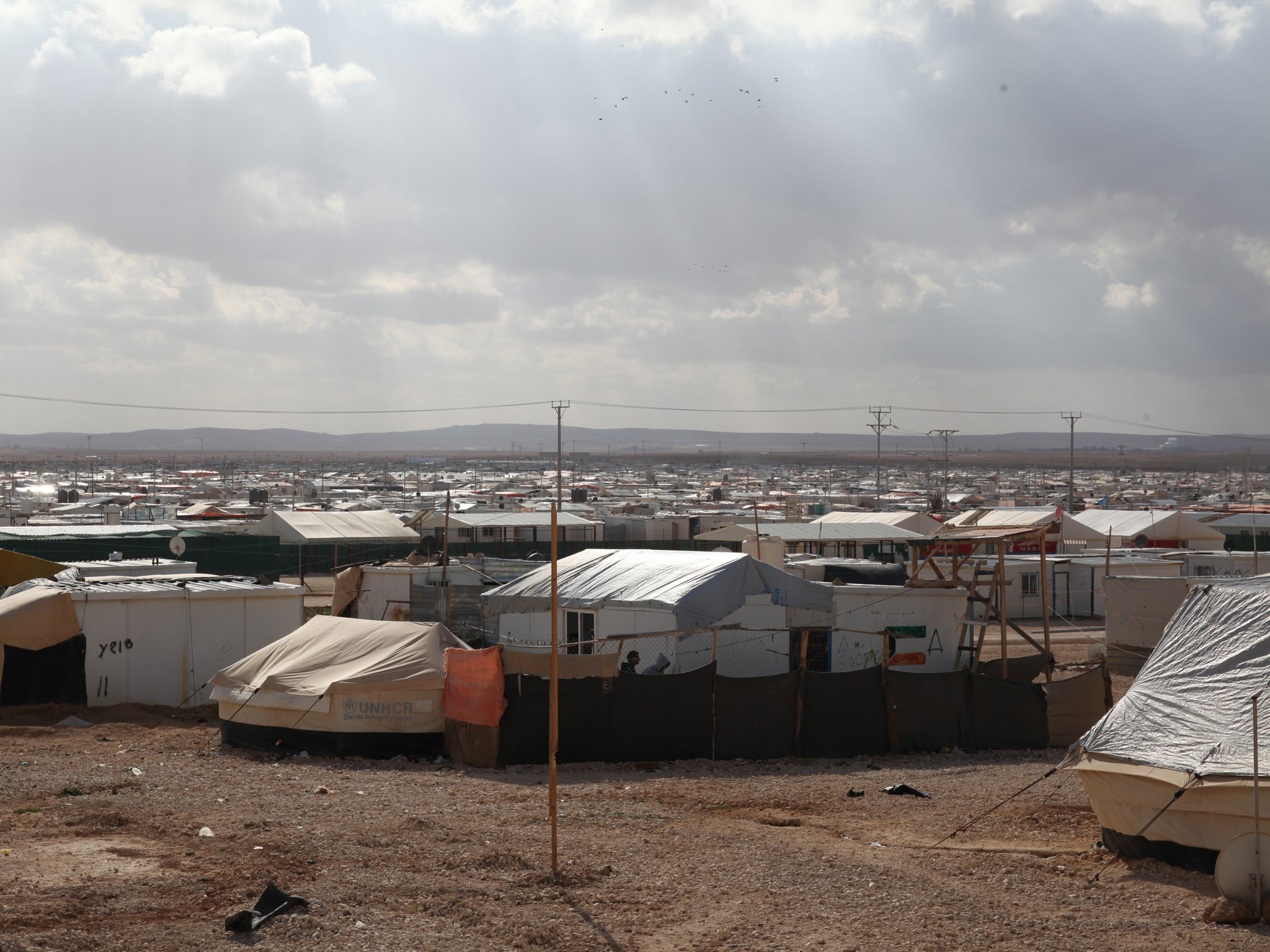
Rani goes into the homes – prefab one-room boxes that replaced the original tents – including that of a man whose stone sculptures and vegetable patch had transformed his home into something of an oasis. Doctor Javid visits some of the camps’ 11 clinics and hospitals including a Syrian-run medical centre whose head had turned down a number of lucrative job offers to help his countrymen. A board member for Médecins Sans Frontières (MSF) in the UK who has worked in medical response units in Haiti following the earthquake and more recently in Ebola crisis centres, Doctor Javid says that he was “pleasantly surprised” by the relative order and structure. Any tertiary care was referred out of the camp, as it would be in a normal town of that size.
Away from the medical scenes, the film shows plenty of joyful vignettes of camp life. Like Musa and Montaha's on-screen wedding, or young Mohammed who proudly shows Timberlake a snazzy red and yellow bike with flashing dynamos and glittering hanging decorations that he fixed up in the cycle shop where he works. Bikes are the main mode of transport in the camp and a good one is a status symbol.
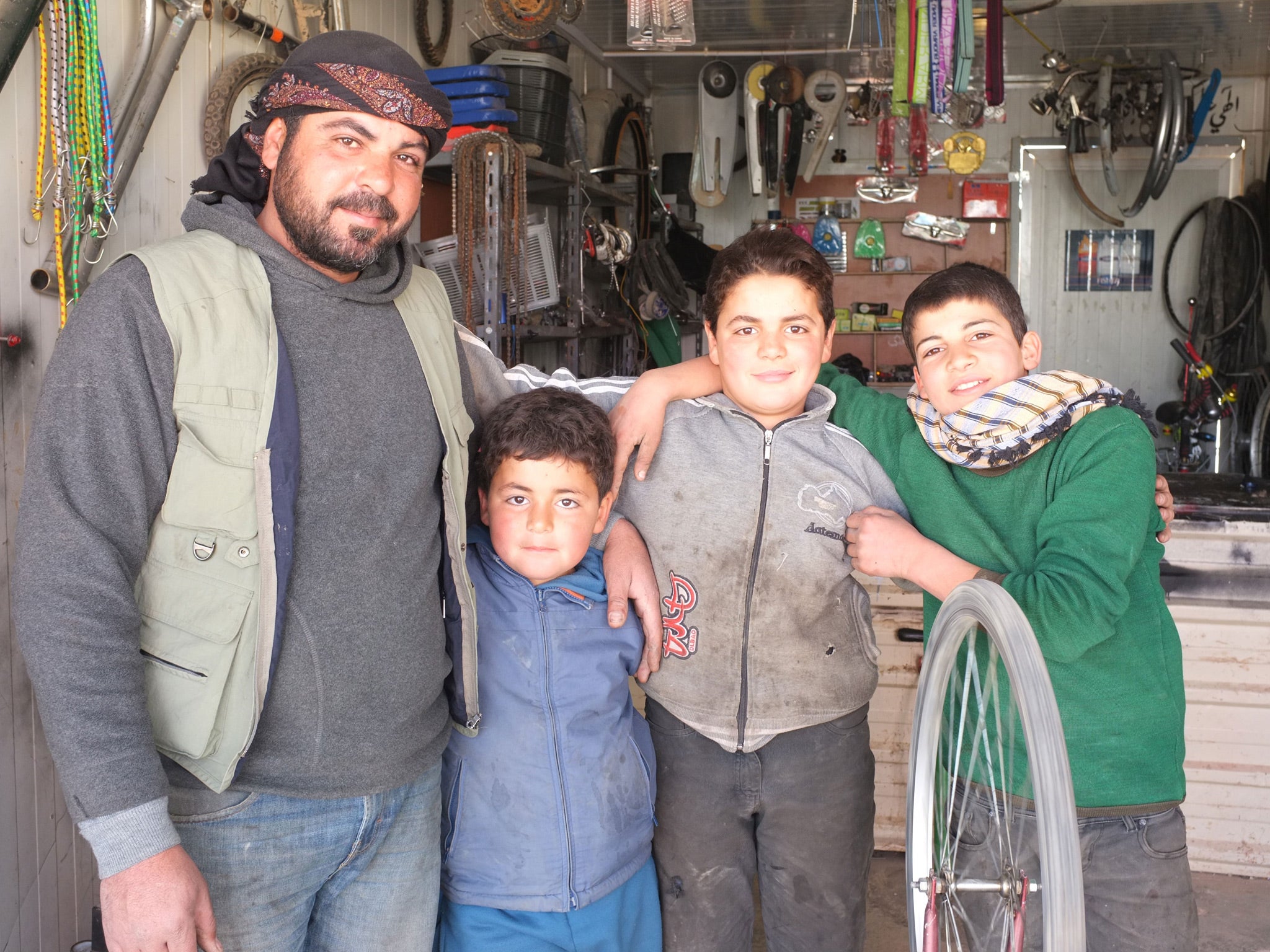
But there are also the hard facts. The people of Zaatari are legally not allowed to work. The authorities turn a blind eye to the 3,000-plus businesses, the barbers, bakers, bike shop and falafel stalls and stalls selling clothes that line the main “market street” and run alongside the hospitals, schools and official supermarkets. But the majority of people at the camp are not employed. Each inhabitant receives £20 food allowance a month from the authorities, as well as a water allowance and most are reliant on handouts. This is an alien state for people who were doctors, lawyers, teachers, hairdressers and restaurant owners back in Syria.
The demographic of the camp is young: 75 per cent under-18s and women. These are people who were fit enough to walk to the camp with their belongings, but not for fighting or yet pushed on to Europe. “The amount of people who had lost male relatives was heart-breaking,” says Timberlake. It’s hard to ignore the fact that none of the upbeat subjects would have chosen this life. Like 18-year-old bride Montaha who acknowledged that if she were at home she would be in her first year at university studying to be a doctor. Or Mohammed's friend working at the the bike shop who, like a third of the kids in the camp, had stopped going to school. “It’s better for me and my family, but not for my future.”
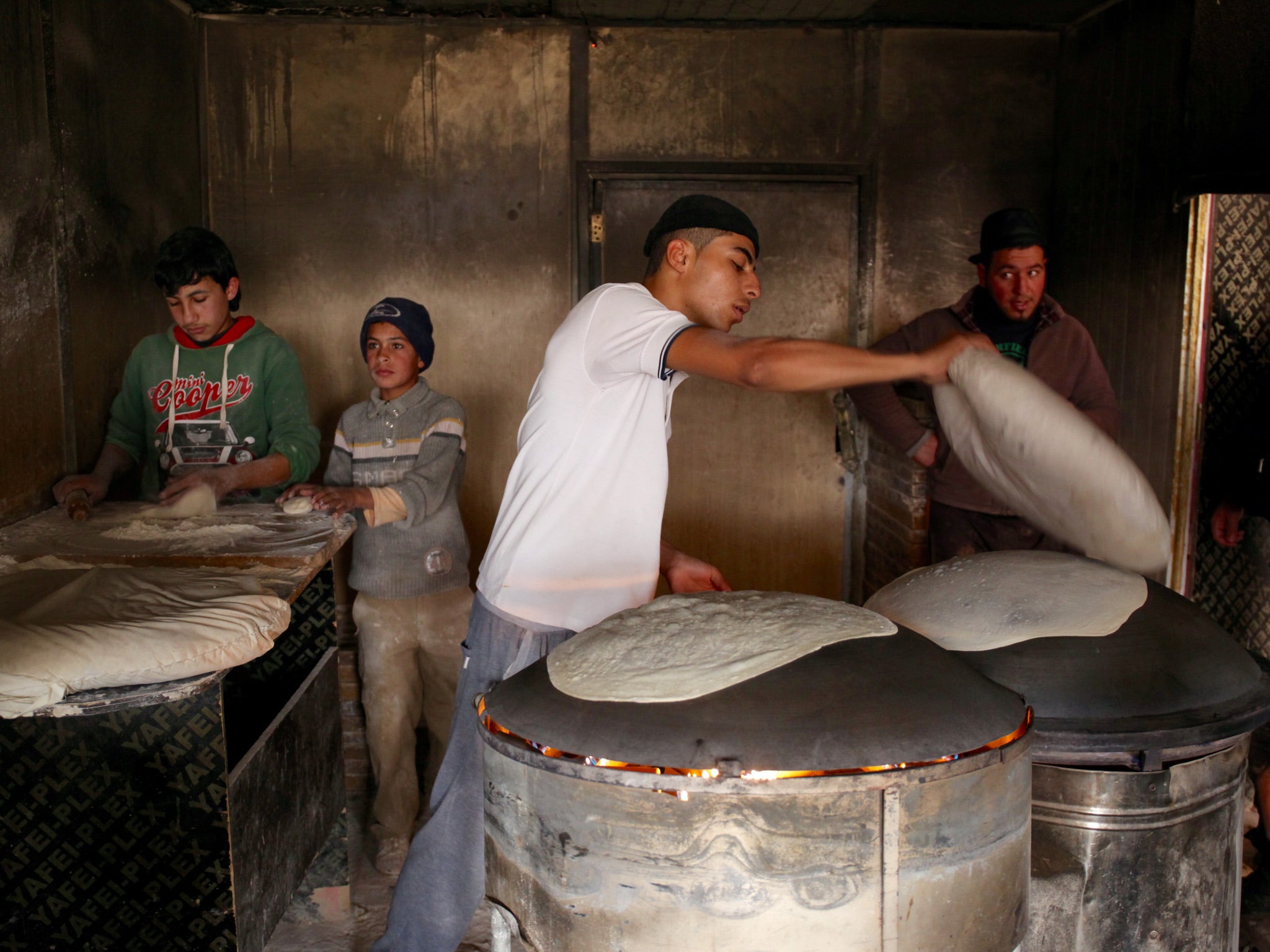
Zaatari previously had a reputation for rioting and reports suggested that prostitution was commonplace. While by all accounts, security has improved in the last couple of years, the film steers clear of this controversy. Likewise, we only hear the stories of the families willing to appear on camera. Doctor Javid says that they encountered the world’s oldest man, who has been certified as living in the camp, but his daughter who usually interprets her father’s stories wasn’t willing to appear on film (many of the camps’ inhabitants come from Dera, a conservative part of the country). “You really had to have good relationships with the family to film with the women. But it was often hard getting the kids out of shot,” says Timberlake.
There was also, both presenters say, an unwillingness by some to speak out as they were worried that their relatives in Syria could get into trouble. There is that constant reminder of the fact that a catastrophic war is being waged just seven miles over the border. “Look how many people there are in wheelchairs, that’s not normal,” says Doctor Javid at one point when he visits the camp's trauma unit.
There’s a conflict between accepting that Zaatari is not a short-term solution and the fact that no one wants to be there. Doctor Javid says that he was struck by the empty communal ablution blocks, that people had installed bathrooms in their own houses, yet for many there was a reluctance to spend on decorative trappings. “There’s a feeling of stasis, being in limbo,” he says. “There is still this feeling that this isn’t permanent, they are still clinging on to that hope of wanting to get back to Syria as soon as possible.”
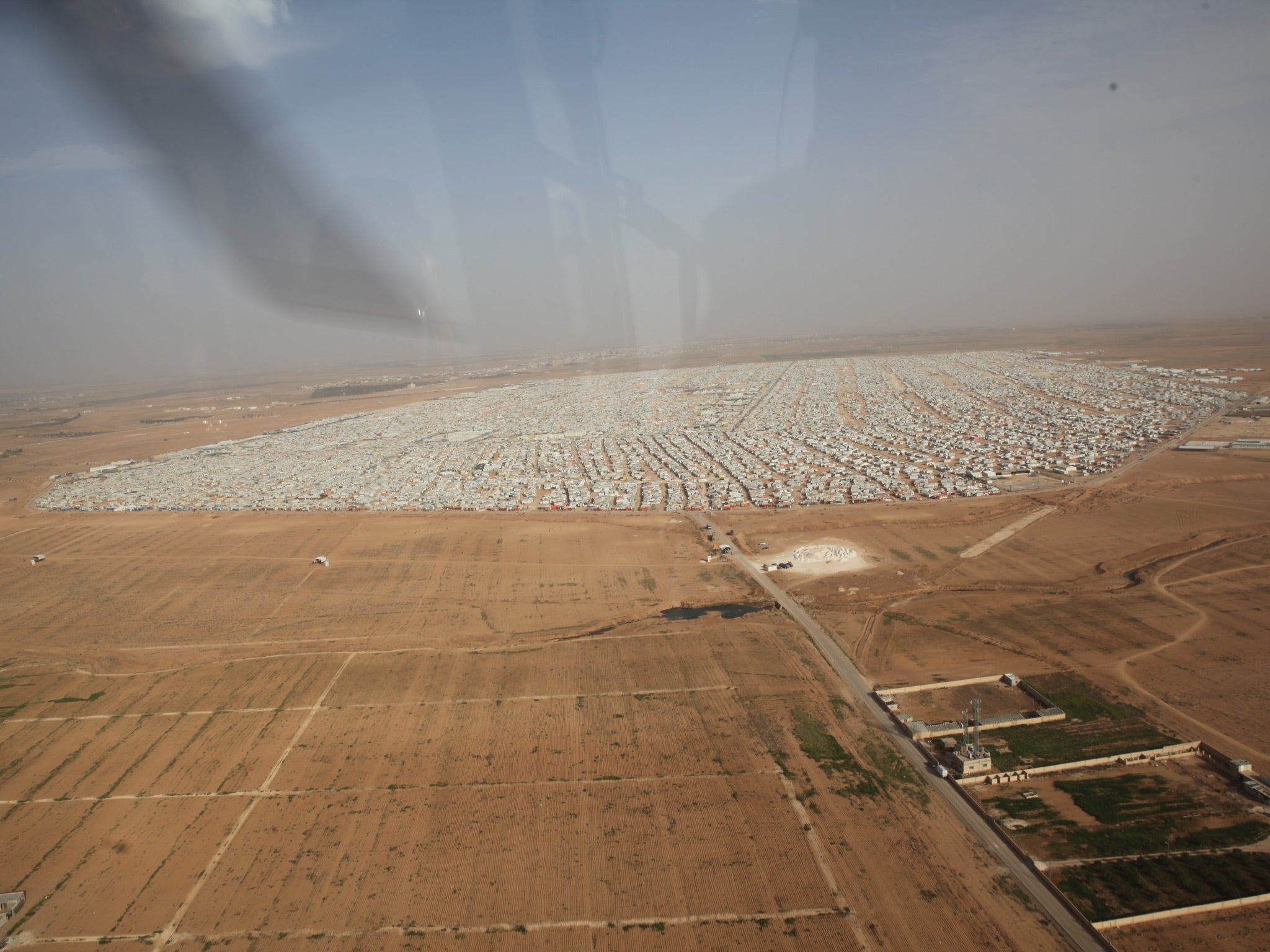
Indeed, both say the people they met showed little interest in going to Britain. Those that leave the camp tend to go to countries taking more refugees: Germany, Saudi Arabia and Canada, rather than Britain. Our government has pledged to take 20,000 Syrians by 2020, a stark contrast compared to the likes of Jordan, which has housed more than 635,000 from its neighbour so far. With the onset of summer, the school holidays and a perception of slightly more stability, more people have actually returned to their homeland in recent months than to other countries.
“From the west, we see these people streaming towards us. We take it personally and think they’re coming here,” says Timberlake. “But actually they’re just trying to get away from Syria. The pull for them going home is much stronger than their desire for a new, better life.” Timberlake says that he experienced a similar phenomenon after working in Iraq in the early 2000s and that all the friends he made who fled, have returned to the country.
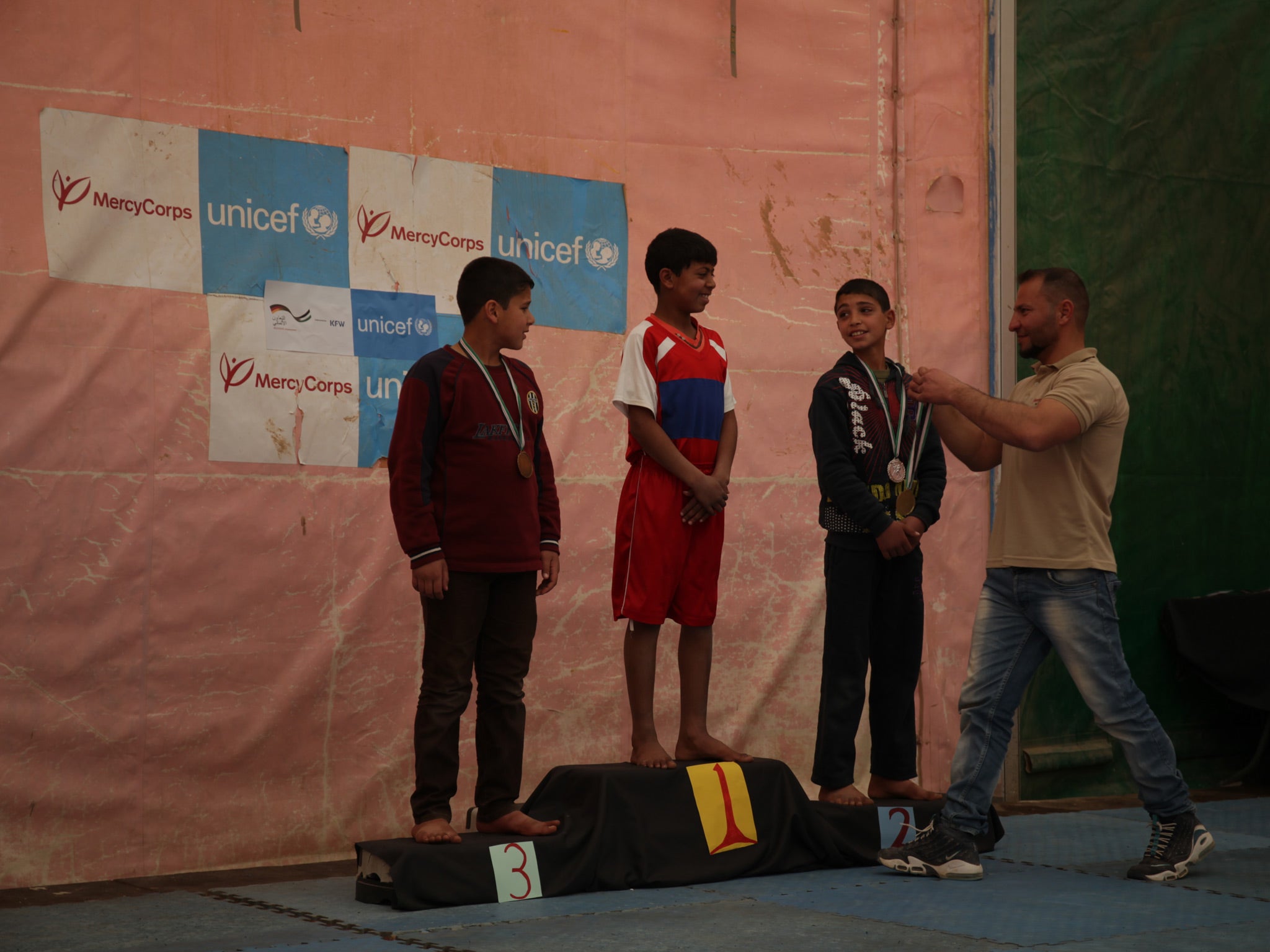
He says the draw of Canada as a destination is more visible at the camp, indeed in the film you see a family packing to move there. But also that the Syrians, from his experience, don’t feel the same affinity with the UK. That’s different, he says, from other areas where he has worked, like Mali, where many refugees come up from Nigeria, a former colony, and see Britain as “a promised land”.
While the presenters acknowledge life in Zaatari is hard, perhaps harder than this film suggests, they both think that Britain can learn from their Jordanian counterparts. This is particularly stark when comparing Zaatari with the likes of The Jungle in Calais, not an official UN camp or anything like the scale of Zaatari, but one that houses thousands of refugees.
“Jordan is doing a very, very good job of dealing with large number of Syrians who have sought safety in that country and they’ve managed to find some sort of comfort in living,” says Doctor Javid. “It’s not ideal but it’s better than nothing. It’s a shame that France and Britain couldn’t do better in Calais.”
As well as the authorities, they both hope the British can change their attitudes. “We can’t even handle a few extra thousand people without it being a huge debate and those countries show levels of generosity that shame us,” says Timberlake. Perhaps it is their turbulent history that is the difference. “They all have memories in their families of running from something. That’s the downside of two generations of peace and posterity for you.”
Above all, they say that they want us to see the refugees as the same as us. “Try and understand it as if it was happening to you,” says Timberlake. “A simple exercise of empathy, from the bottom down. I would hope every viewer would come away with the sort of understanding: ‘There but for the grace of God go I.'”
‘The Refugee Camp: Our Desert Home’ starts July 21 on BBC2 at 9pm
Join our commenting forum
Join thought-provoking conversations, follow other Independent readers and see their replies
Comments